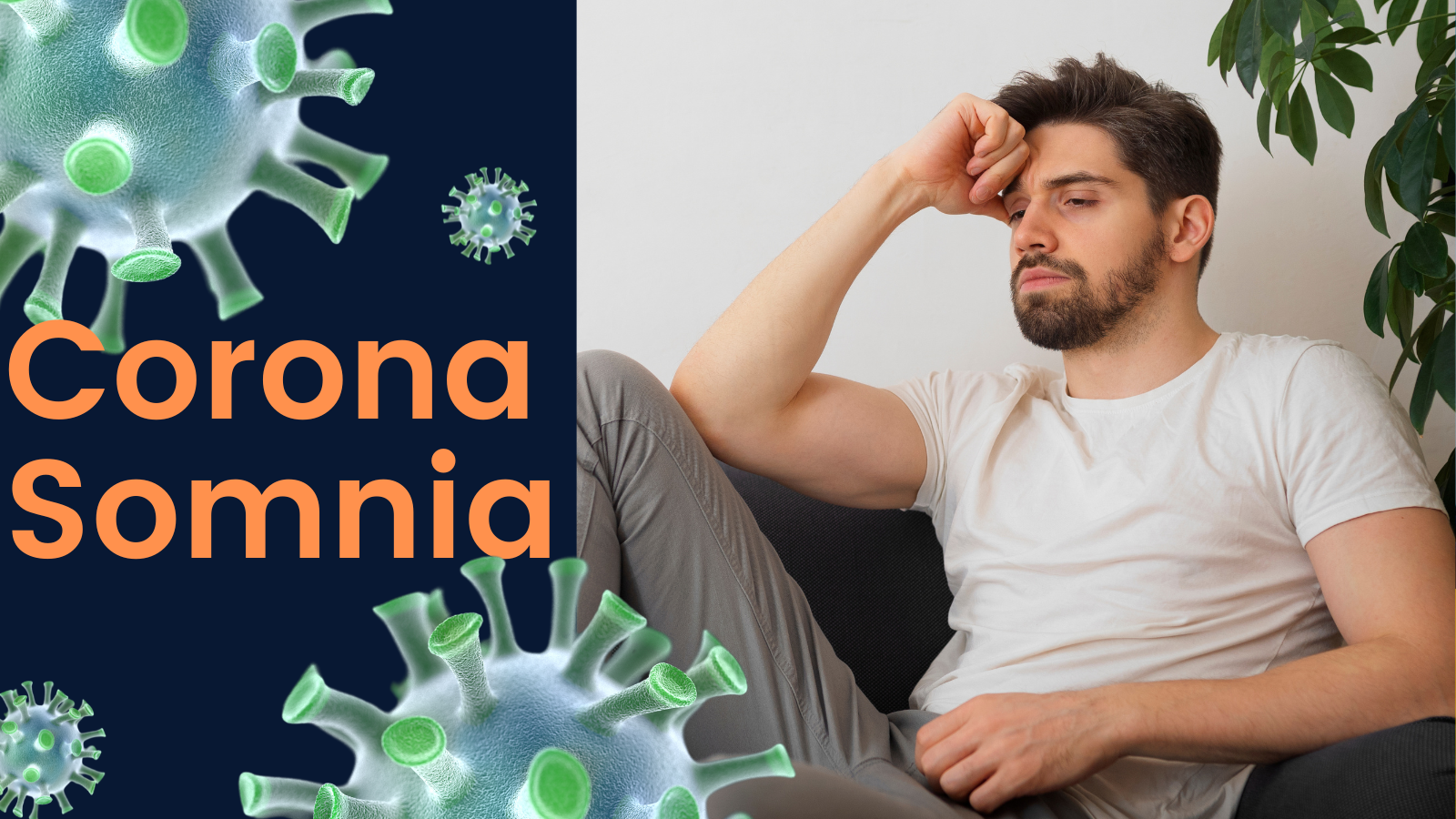The Coronasomnia Effect Sleep Disorders
Definition, Symptoms, and Solutions
The Coronasomnia Effect Sleep Disorders , The COVID-19 pandemic has led to significant disruptions in various aspects of daily life. One such area profoundly affected is sleep. With the stress and uncertainty brought about by the pandemic, many individuals are experiencing difficulties with sleep, leading to the emergence of what experts are terming “Coronasomnia.”
Introduction to Coronasomnia
The Coronasomnia Effect Sleep Disorders experienced by individuals during the COVID-19 pandemic. It encompasses a range of sleep disorders, including insomnia, sleep apnea, and restless leg syndrome, among others. The term has gained traction as more people report difficulties falling asleep or staying asleep amidst the challenges posed by the pandemic.

Struggling to sleep amidst the pandemic? Learn about Coronasomnia and how to manage it effectively.
has summarized these stressors into the mnemonic device “FED UP”:
Financial stress
Emotional stress
Distance from others
Unpredictability
Professional concerns
Understanding The Coronasomnia Effect Sleep Disorders
Insomnia
Insomnia is perhaps the most prevalent sleep disorder associated with Coronasomnia. Individuals with insomnia struggle to fall asleep or stay asleep, leading to feelings of fatigue, irritability, and difficulty concentrating during the day.
Sleep Apnea
Sleep apnea is another common sleep disorder characterized by pauses in breathing during sleep. These interruptions can lead to fragmented sleep and contribute to feelings of unrest upon waking.
Impact of the Pandemic on Sleep
The pandemic has introduced numerous stressors into people’s lives, ranging from concerns about health and safety to financial worries and social isolation. These stressors can significantly impact sleep quality, leading to an increase in sleep disorders among the population.
Factors Contributing to Coronasomnia
Stress and Anxiety
The uncertainty surrounding the pandemic has heightened levels of stress and anxiety for many individuals. Persistent worries about contracting the virus, job security, or the well-being of loved ones can manifest as sleep disturbances.
Changes in Routine
With lockdowns and social distancing measures in place, many people have experienced disruptions to their daily routines. Working from home, homeschooling children, or dealing with other changes in lifestyle can disrupt sleep patterns and contribute to Coronasomnia.
Increased Screen Time
The pandemic has also led to a surge in screen time, whether for work, entertainment, or staying connected with others virtually. Excessive exposure to screens, particularly before bedtime, can interfere with the body’s natural sleep-wake cycle and exacerbate sleep problems.
Symptoms of Coronasomnia
It’s essential to recognize the signs of Coronasomnia early on to address them effectively. Common symptoms include difficulty falling asleep, frequent waking during the night, daytime fatigue, irritability, and difficulty concentrating.
Tips for Managing Coronasomnia
Establishing a Consistent Sleep Schedule
Maintaining a regular sleep schedule, even on weekends, can help regulate the body’s internal clock and improve sleep quality.
Limiting Screen Time Before Bed
Reducing exposure to screens, such as smartphones, tablets, and computers, at least an hour before bedtime can promote better sleep by minimizing the disruptive effects of blue light.
Creating a Relaxing Bedtime Routine
Engaging in calming activities before bed, such as reading, taking a warm bath, or practicing relaxation techniques like deep breathing or meditation, can signal to the body that it’s time to wind down and prepare for sleep.
Practicing Stress-Relief Techniques
Finding healthy ways to manage stress, such as exercise, journaling, or talking to a trusted friend or therapist, can alleviate anxiety and promote better sleep.
Seeking Professional Help
If sleep disturbances persist despite self-help strategies, it’s essential to seek professional help from a healthcare provider or sleep specialist. They can evaluate underlying causes of sleep problems and recommend appropriate treatment options.
The Importance of Addressing Coronasomnia
Addressing Coronasomnia is crucial not only for improving sleep quality but also for maintaining overall health and well-being. Chronic sleep disturbances can increase the risk of various health conditions, including cardiovascular disease, obesity, and mental health disorders.
Conclusion
In conclusion, Coronasomnia represents a significant challenge for many individuals amidst the COVID-19 pandemic. By understanding the factors contributing to sleep disturbances and implementing effective strategies for managing them, it’s possible to mitigate the impact of Coronasomnia and promote better sleep and overall health.
FAQs
- Is Coronasomnia a temporary or long-term condition? Coronasomnia can vary in duration depending on individual circumstances. While some may experience temporary sleep disturbances, others may struggle with long-term insomnia or other sleep disorders.
- Can Coronasomnia affect children and adolescents? Yes, children and adolescents can also experience Coronasomnia due to the stress and disruptions caused by the pandemic on their routines and daily lives.
- Are there any natural remedies for managing Coronasomnia? Several natural remedies, such as herbal teas, relaxation techniques, and mindfulness practices, may help alleviate symptoms of Coronasomnia. However, it’s essential to consult with a healthcare professional before trying any new remedies.
- How does Coronasomnia impact mental health? Coronasomnia can exacerbate existing mental health conditions or contribute to the development of new ones, such as anxiety and depression, due to the interplay between sleep and mental well-being.
- When should I seek professional help for Coronasomnia? If sleep disturbances persist for an extended period or significantly impair daily functioning, it’s advisable to consult with a healthcare provider or sleep specialist for a comprehensive evaluation and appropriate treatment recommendations.
Dr. Kevin Gilliland, clinical psychologist and Executive Director at Innovation360, joined Wake Up With Cheddar to break down the spike in insomnia occurring all over the world due to uncertainty from the COVID-19 pandemic. Dr. Gilliland discusses the mental and physical consequences of a lack of sleep, and gives tips for how we can put ourselves in the best position to get a good night’s rest.



